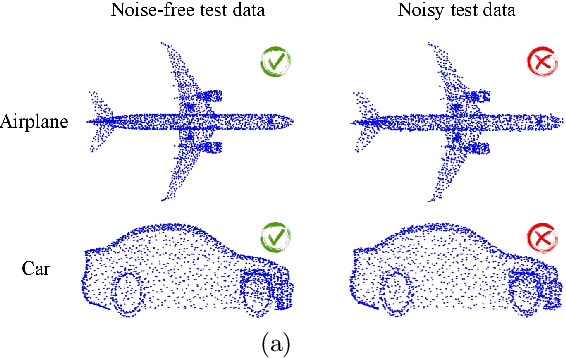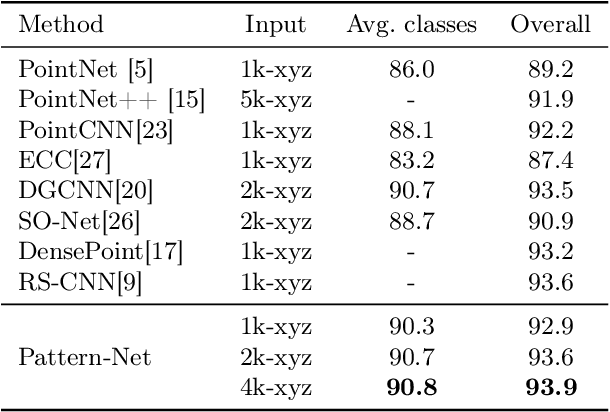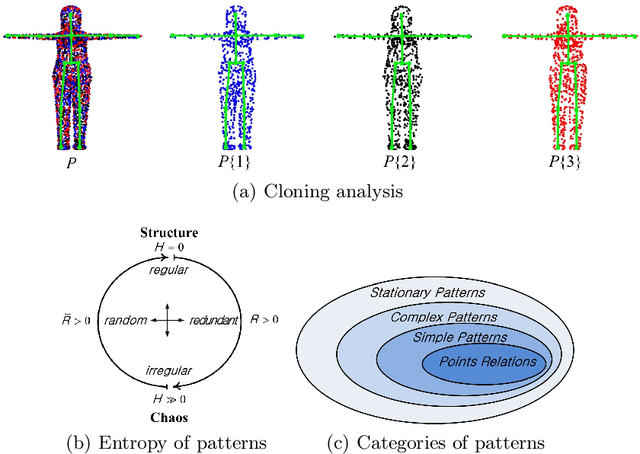Orderly Disorder in Point Cloud Domain
Paper and Code
Aug 21, 2020



In the real world, out-of-distribution samples, noise and distortions exist in test data. Existing deep networks developed for point cloud data analysis are prone to overfitting and a partial change in test data leads to unpredictable behaviour of the networks. In this paper, we propose a smart yet simple deep network for analysis of 3D models using `orderly disorder' theory. Orderly disorder is a way of describing the complex structure of disorders within complex systems. Our method extracts the deep patterns inside a 3D object via creating a dynamic link to seek the most stable patterns and at once, throws away the unstable ones. Patterns are more robust to changes in data distribution, especially those that appear in the top layers. Features are extracted via an innovative cloning decomposition technique and then linked to each other to form stable complex patterns. Our model alleviates the vanishing-gradient problem, strengthens dynamic link propagation and substantially reduces the number of parameters. Extensive experiments on challenging benchmark datasets verify the superiority of our light network on the segmentation and classification tasks, especially in the presence of noise wherein our network's performance drops less than 10% while the state-of-the-art networks fail to work.
 Add to Chrome
Add to Chrome Add to Firefox
Add to Firefox Add to Edge
Add to Edge